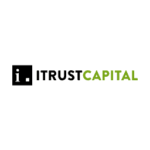If altcoins vanished tomorrow, the blockchain would still be changing approaches in industries from shipping to produce. The idea of a distributed, public ledger with thousands or millions of backups is a powerful one with some fascinating applications. But what will it mean, and more importantly, how will it benefit banks and financial consumers?
Cost Savings
At its most basic, blockchain can be a useful and efficient way for financial institutions to manage the books and involve the customer in the process. For example, banks can use blockchain technology to give customers granular details of where their money is invested and when interest payments come through. Instead of encoding and issuing ATM cards, banks can create and use securely encrypted apps based on blockchain. By adopting this technology, financial institutions can save money and grant customers more safety, power and control over the money they entrust in those institutions.
Accountability
It’s rarely discussed, but computerization and software have done wonders to reduce both external fraud and internal misuse of company assets. It’s much harder for an employee to fudge the books when those books are digitally generated, and you can check who last logged into the computer to change them, after all. But blockchain promises to further reduce increasingly rare incidents of fraud for financial institutions that adopt the technology. Blockchain technology makes all transactions easy to check and makes it impossible to change every backup of the books. Therefore, fraud attempts can be stopped before the money leaves the bank, and customer accounts will be protected.
Compliance
Similarly, instead of worrying about compliance with private auditors or government authorities, financial institutions who adopt blockchain technology will be able to provide these auditors and the government with access to the blockchain so they can see business unfold with complete transparency. Blockchain technology will not only allow financial institutions to intercept any suspicious activity, but it also has the potential to streamline the auditing process. Instead of having to dig out paperwork, it can all be securely digitized, easy to search, and available with the click of a button. Financial institutions can spend less time immersed in complex auditing processes and more time focused on the consumer.
New Business Opportunities
And, finally, there’s the question of simplified transactions and new business opportunities. It’s easy to think of blockchain as just a source of altcoins, but stop and consider the accountability inherent in this technology and how that puts customers at ease. For example, exciting blockchain ideas are surrounding foreign exchange, where an altcoin is used as a “stand-in” for the currency you’re exchanging. Instead of taking hours to convert from one currency to another, particularly tricky with more volatile currencies, you buy the requisite amount in your currency and pay it to your foreign counterpart. Then, they cash it out, and you’re done in seconds. Even better, you’ve done it over a secure network, with a clear public record, making compliance and legal obligations a snap. It’s a win-win for financial institutions and consumers.
Blockchain is just getting started as a technology, and it has an exciting future. Banks.com provides the most up-to-date information on blockchain and banks, as well as helpful financial tools for the forward-thinking investor. Get a full look at your financial picture.






